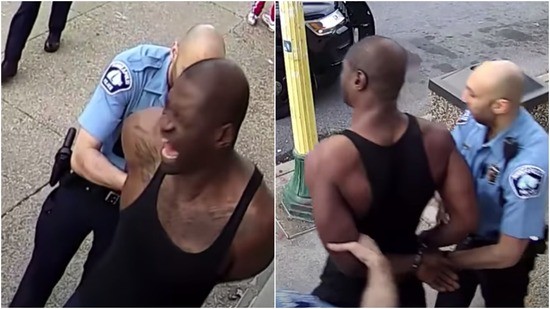Column: What should be done about police reform?

January 28, 2021
Since the killing of George Floyd in May 2020 and the consequential 2020-2021 United States Racial Unrest, there has been an emergence of the Black Lives Matter movement and police reform protests nationwide. Now with Joe Biden elected as the 46th President of the United States, he is expected to address these very problems, as well as the others that he talked so highly about during his campaign. But, where does he stand on the issue now that he is in office? What should be done?
The police and President Biden have an interesting relationship. Biden is credited as being one of the main authors of the notoriously dangerous 1994 Crime Bill, a bill even he credited that “trapped a generation.” The effects of this were unprecedented incarcerating over 400,000 civilians during the 1990s, imposing mandatory lifelong sentences, authorizing the death penalty and expanding the school-to-prison pipeline.
During his campaign, he has called the Crime Bill “a mistake” and promised to make changes to alter its effects. He has openly come out to address the negative impacts of not only this, but an overload of law enforcement behavior that has led to misconduct, high incarceration and innocent deaths. Biden has promised to bring change, but his plan of action is an interesting one.
President Biden’s idea to combat police reform is to invest in it in a healthy way this time around. To be clear, his plan is reform oriented with a focus on community crime prevention and expanding officer misconduct accountability. For starters, Biden is pushing for a $20 billion grant to incentivized states to reduce prison population and improve prison conditions. Cities, counties and states will receive funding if they take on policies that reduce crime and incarceration. Some policies mentioned are eliminating mandatory minimums for nonviolent crimes, earned credit programs and decriminalizing marijuana.
With Congress now under the Democratic Party’s control, Biden has a high possibility to push through his second plan of action, a $300 million investment into the Community Oriented Policing Service to support community policing. This investment is believed by Biden to improve police-civilian relationships and embrace federal oversight of state and local police departments.
Federal oversight of the executive branch will allow it to model a new standard of police behavior by implementing a National Use of Force Standard, body cams, recruiting more diverse police officers, access to mental health and substance abuse programs and launching investigations into police behavior under consent-decrees.
To many, these programs seem like a turn in the right direction, but to those who have been fighting the battle against the justice system are not yet impressed. Many have not forgotten the effects of his 1994 Crime Bill and rightfully so. Throughout the course of 2020, there were widespread protests to defund the police.
We have seen various police departments with high grade military weapons, shields, chemicals and vehicles across the country in response to protests and city hall meetings, yet during this same time, hospitals were not funded with appropriate amounts of masks, cleaning supplies or equipment during a pandemic. Now, with plans for this same department to get more funding, many are worried that they will not be used for its purpose.
However, defunding the police is something not on Biden’s list. During a recent speech, he stated, “What I support are the police having the opportunity to deal with the problems they face and I’m totally opposed to defunding the police officers.” Biden is uniquely positioned. He wants to bring together police chiefs, officers and civil rights groups to work this out together. He has the utmost respect for the police department, but realizes the effects of a clear overload of law enforcement and their decisions that affect the community’s support from which he garnered. I think we can tell how committed Biden is with the way he implements his policies.
With a Democratic president, Democratic Congress, the first African American woman vice president alongside him and the support of the African American community, there is no excuse not to get things done.






